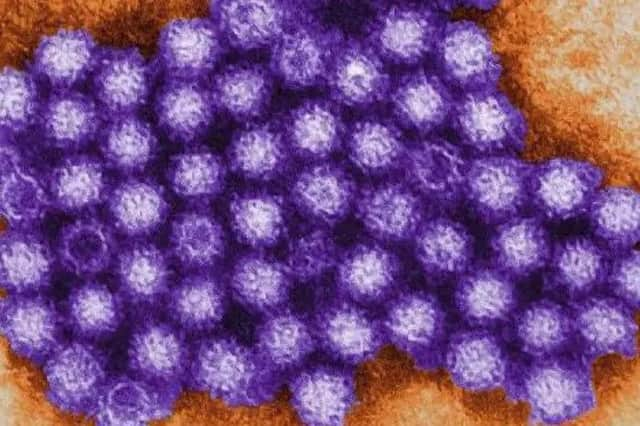How to deal with '˜winter vomiting bug' as cases expected to rise


Norovirus can be very unpleasant but it usually clears up by itself in a few days.
You can normally look after yourself or your child at home.
Try to avoid going to your GP, as norovirus can spread to others very easily. Call your GP or NHS 111 if you’re concerned or need any advice.
Symptoms of norovirus
You’re likely to have norovirus if you experience:
suddenly feeling sick
projectile vomiting
watery diarrhoea
Advertisement
Advertisement
Some people also have a slight fever, headaches, painful stomach cramps and aching limbs.
The symptoms appear one to two days after you become infected and typically last for up to two or three days.
What to do if you have norovirus
If you experience sudden diarrhoea and vomiting, the best thing to do is to stay at home until you’re feeling better. There’s no cure for norovirus, so you have to let it run its course.
You don’t usually need to get medical advice unless there’s a risk of a more serious problem (see When to get medical advice).
To help ease your own or your child’s symptoms:
Advertisement
Advertisement
* Drink plenty of fluids to avoid dehydration. You need to drink more than usual to replace the fluids lost from vomiting and diarrhoea – as well as water, adults could also try fruit juice and soup. Avoid giving fizzy drinks or fruit juice to children as it can make their diarrhoea worse. Babies should continue to feed as usual, either with breast milk or other milk feeds.
* Take paracetamol for any fever or aches and pains.
* Get plenty of rest.
* If you feel like eating, eat plain foods, such as soup, rice, pasta and bread.
* Use special rehydration drinks made from sachets bought from pharmacies if you have signs of dehydration, such as a dry mouth or dark urine.
* Adults can take antidiarrhoeal and/or anti-emetic (anti-vomiting) medication – these are not suitable for everyone though, so you should check the medicine leaflet or ask or your pharmacist or GP for advice before trying them.
Advertisement
Advertisement
Babies and young children, especially if they’re less than a year old, have a greater risk of becoming dehydrated. Read advice about looking after babies and children under five who have diarrhoea and vomiting.
Norovirus can spread very easily, so you should wash your hands regularly while you’re ill and stay off work or school until at least 48 hours after the symptoms have cleared, to reduce the risk of passing it on (see Preventing norovirus below).
When to get medical advice
You don’t normally need to see your GP if you think you or your child has norovirus, as there’s no specific treatment for it.
Antibiotics won’t help because it’s caused by a virus.
Visiting your GP surgery with norovirus can put others at risk, so it’s best to call your GP or NHS 111 if you’re concerned or feel you need advice.
Get medical advice if:
Advertisement
Advertisement
* your baby or child has passed six or more watery stools in the past 24 hours, or has vomited three times or more in the past 24 hours
* your baby or child is less responsive, feverish, or has pale or mottled skin
* you or your child has symptoms of severe dehydration, such as persistent dizziness, only passing small amounts of urine or no urine at all, or reduced consciousness – babies and elderly people have a greater risk of becoming dehydrated
* you have bloody diarrhoea
* your symptoms haven’t started to improve after a few days
* you or your child have a serious underlying condition, such as kidney disease, and have diarrhoea and vomiting
Advertisement
Advertisement
Your GP may suggest sending off a sample of your stool to a laboratory to confirm whether you have norovirus or another infection.
How is norovirus spread?
Norovirus spreads very easily in public places such as hospitals, nursing homes and schools.
You can catch it if small particles of vomit or poo from an infected person get into your mouth, such as through:
* close contact with someone with norovirus – they may breathe out small particles containing the virus that you could inhale
Advertisement
Advertisement
* touching contaminated surfaces or objects – the virus can survive outside the body for several days
* eating contaminated food – this can happen if an infected person doesn’t wash their hands before handling food
A person with norovirus is most infectious from when their symptoms start until 48 hours after all their symptoms have passed, although they may also be infectious for a short time before and after this.
You can get norovirus more than once because the virus is always changing, so your body is unable to build up long-term resistance to it.
Preventing norovirus
Advertisement
Advertisement
It’s not always possible to avoid getting norovirus, but following the advice below can help stop the virus spreading.
Stay off work or school until at least 48 hours after the symptoms have passed. You should also avoid visiting anyone in hospital during this time.
Wash your hands frequently and thoroughly with soap and water, particularly after using the toilet and before preparing food. Don’t rely on alcohol hand gels, as they do not kill the virus.
Disinfect any surfaces or objects that could be contaminated. It’s best to use a bleach-based household cleaner.
Advertisement
Advertisement
Wash any items of clothing or bedding that could have become contaminated separately on a hot wash to ensure the virus is killed.
Don’t share towels and flannels.
Flush away any infected poo or vomit in the toilet and clean the surrounding area.
Avoid eating raw, unwashed produce and only eat oysters from a reliable source, as oysters can carry norovirus.